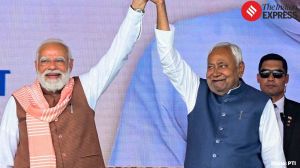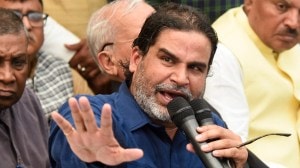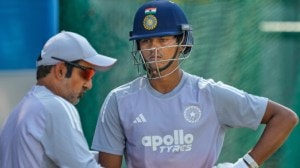Letters To The Editor
Not saral• The new income tax return form (Form 2E) is absolutely unnecessary and will entail extra time and energy for most taxpayers,...

Not saral
• The new income tax return form (Form 2E) is absolutely unnecessary and will entail extra time and energy for most taxpayers, who are salaried employees. The old IT return form, Saral, was actually ‘saral’ whereas the four-page new form will only serve the purpose of getting more information from tax payers about their investments, household expenditure etc for the income tax department. It would have been better if the new form had been applicable for those having more than Rs 10,00,000 total income. Further, the CBDT should dispense with the requirement of filing this form electronically, as this can be and should be done by the department at its own expense if it considered absolutely necessary.
— R.N. Lakhotia New Delhi
Affirmative fiction
• By quoting what the Supreme Court said in the 1971 Peria Karuppan case, M. Rama Jois (‘One answer to 5 tricky questions’, IE, June 2) has zeroed in on the fundamental flaw — indeed calculated mischief — in the government’s move to reserve 27% seats for OBCs: “Government should not proceed on the basis that once a class is considered as a backward class it should continue to be a backward class for all times…” That every government has done precisely this is evidenced by the fact that the number of backward classes as well as their overall percentage in the population has increased in the post-Mandal decades. With ever-increasing affirmative action, India is steadily growing more and more backward. Today, if one tries to expose this absurdity, this utter hypocrisy, one would attract the label ‘casteist’ and to
suggest that reservations be made on economic grounds rather than on the basis of surnames would be to risk being labelled ‘anti-poor’.
— R.P. Subramanian, Delhi
• What is the definition of OBC? If they are socially and educationally backward (nobody denies that the Indian society has a large section of population without access to modern methods of education), they need orientation and aid from the beginning so that they do not remain the weaker section. If they remain weaker, how will they be able to cope with the syllabi in higher education? Irrespective of religion, status and gender, the citizens of India have equal rights. So why is this discriminatory treatment? This induces hostile feelings in others whom quotas effectively deprive in spite of their merit. If the
government really means to uplift this section, it should come up with some honest policies, not those made for electoral mileage.
— Sikha Majumdar, Kolkata
Eroding presidency
• India needs many citizens to stand up and show our politicians their right place. Thankfully we have people like K.K. Venugopal (‘Rejecting President’s questions…’ IE, June 2). Our politicians need to remember that once they have destroyed the presidency and other constitutional bodies, they themselves will be next on the block. Remember how the Weimar Republic in Germany first destroyed the presidency and then the parliament? Eventually, even Germany was destroyed.
— Satish Dayal, New Delhi
Censor overridden
• The states of Meghalaya and Andhra Pradesh have banned the screening of film ‘The Da Vinci Code’, and ‘Fanaa’ is not released in Gujarat. I wonder how such a decision can be taken by any state when the Censor Board has passed a film. No state should have that authority to go against the Censor Board’s decision, as it is a central body constituted by the central government for the whole of the country.
— Mahesh Kumar, New Delhi



- 01
- 02
- 03
- 04
- 05




























